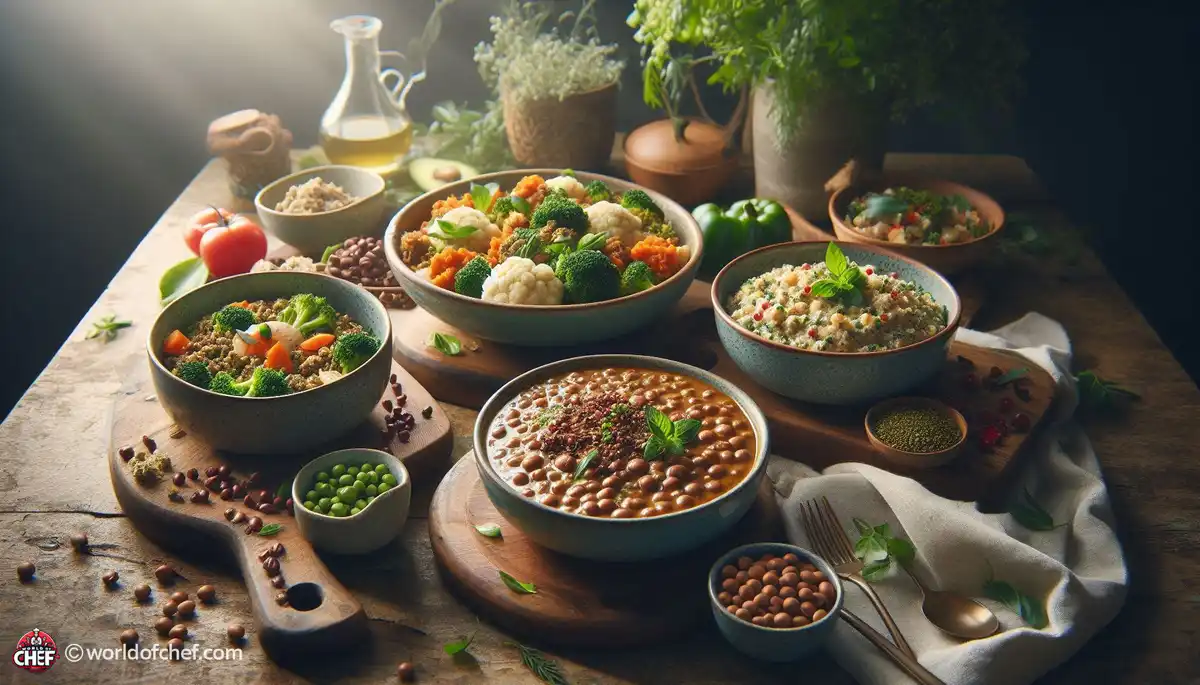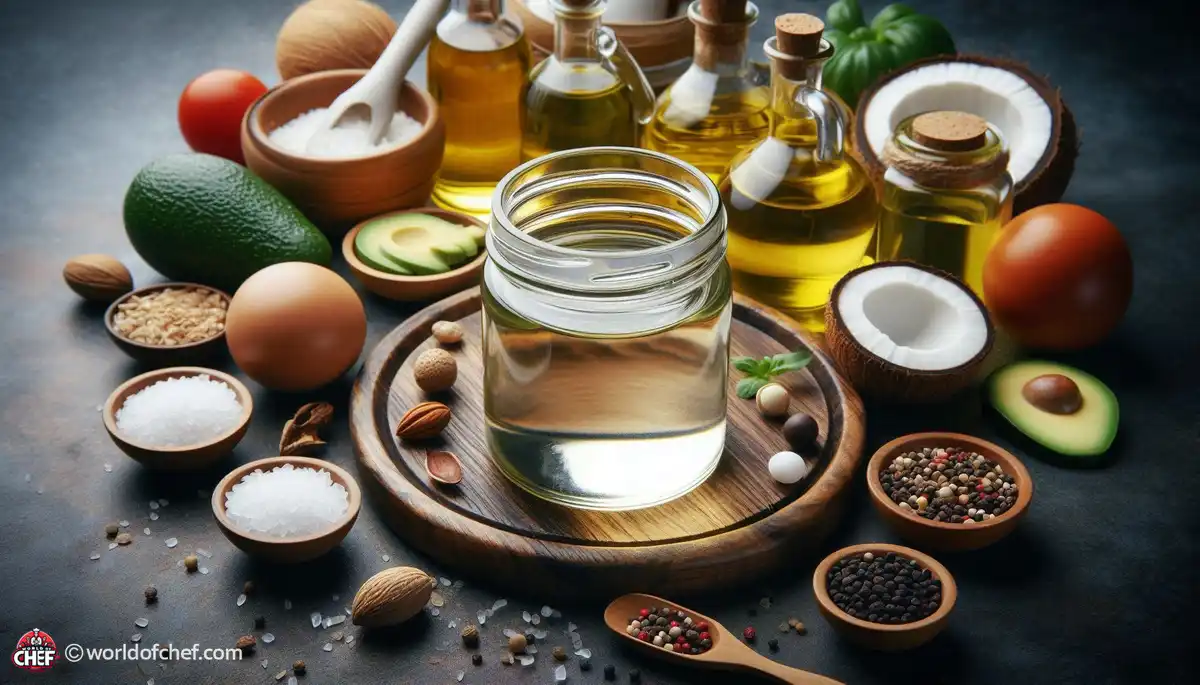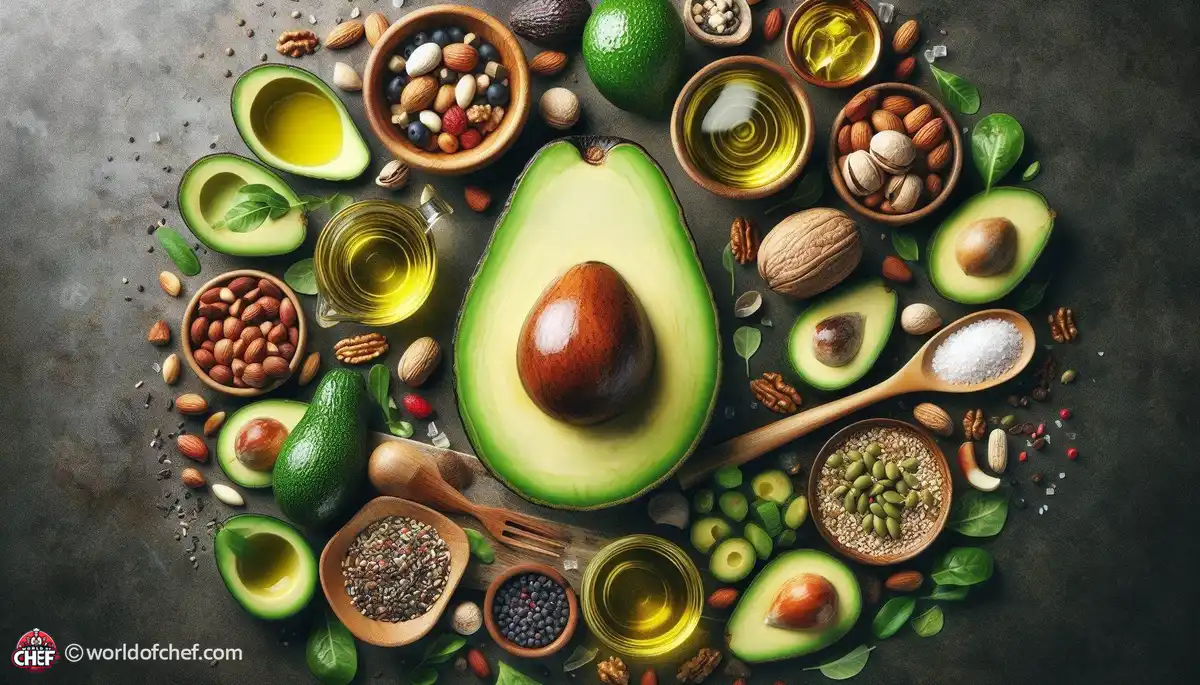
Dinner Delights: High-Fiber Recipes for Every Palate
Clarence Guido - Oct 7, 2024 - 7 min read


Coconut oil is extracted from the meat of mature coconuts. Over the last few years, there has been an increasing interest in the Health Benefits that this oil has to offer. Although it is primarily saturated with fats, coconut oil does contain trace amounts of monounsaturated and polyunsaturated fats. Among these, the MCTs, especially lauric acid, are reported to be healthy by proponents.
Thus, nutritional comparisons among common cooking oils become necessary to determine how healthy coconut oil is compared to these other cooking oils. Traditionally prepared cooking oils such as olive oil, canola oil, and vegetable oil vary substantially in fatty acid composition and hence are established as having rather different health consequences. Their differences might shed light on what the relative healthiness of coconut oil means in contexts of cooking and diet.
Health experts have debated the role of dietary fats in heart conditions for centuries. Saturated Fats in coconut oil have long been associated with increasing levels of LDL cholesterol-high cholesterol. Increasing LDL is a known risk indicator of cardiovascular disease. Now, however, research suggests the opposite: that saturated fats do not have the dangerous influence on heart health believed over time.
The particular concentration of MCTs differentiates coconut oil from most dietary fats, where only long-chain fatty acids are found. MCTs absorb rapidly and are transported to the liver, where they can be broken down into energy swiftly. Advocates of coconut oil say that this specific metabolic pathway may offer several health benefits, including weight loss, improved cognitive function, and enhanced athletic performance.
Besides its health benefits, coconut oil is also very versatile in the kitchen. Coconut oil has a smoke point of about 350°F (177°C) and can be used for sautéing, baking, and frying at medium heat. Due to the subtle coconut flavor it imparts, it has become very popular in several cuisines around the globe.
Although the distinct flavor of coconut oil may find its way into some preparations, it might not necessarily be suitable for all of them. The flavor and aroma of coconut may in fact overpower subtle flavors affecting the balance of a particular dish. For someone wanting a neutral flavored cooking oil with minimal impact on flavors, refined coconut oil being deodorized may come in handy.
Similar to other types of cooking oil, it is important that you keep coconut oil well, thus ensuring its freshness and quality. Store the coconut oil in a cool and dark place, out of the direct sunlight, or heating appliances, since exposure causes oxidation and rancidity. If coconut oil remains unopened, then its viability can reach two years, but an opened bottle should be used in half a year up to one year for a proper taste and quality.
To cook best with coconut oil, it is essential to consider its special properties first. When replacing other fats in a recipe, note that coconut oil may be solid at room temperature and modify the process accordingly. In baking recipes, melted coconut oil can be used as a substitute for butter or vegetable oil, which can give baked goods a subtle coconut flavor. Try experimenting with different combinations of cooking techniques and flavor pairings, and you will see how this coconut oil can yield the maximum enjoyment and benefits in your culinary creations.
Coconut oil has recently been touted as a "superfood" with health benefits. However, there are few things that sound this good and are true, so use caution when you hear something like this. No food is going to give you perfect health, and a healthy diet is based on a balanced variety of whole foods.
Some proponents tout coconut oil as a silver bullet in the fight against numerous maladies-from losing weight to preventing Alzheimer's disease. Little scientific evidence exists to support this notion, but no cure-all exists for anything consumed or inserted into one's body. Moderation and context apply to this addition in one's lifestyle just like everything else.
With a concluding note, coconut oil tops the list as a versatile ingredient with the added and potential health benefit besides having its uses in the culinary world. However, such a thing has to be taken wisely, with consideration for the peculiarities of the oil on top of the potential problems that come with it as well. Coconut oil is okay to cook with, but never one to replace every other cooking oil or one that will solve serious health issues. Once you responsibly and adequately use coconut oil, you can enjoy its benefits and even adopt a diversified balanced approach to eating.

Clarence Guido - Oct 7, 2024 - 7 min read

Lydia Timmerman - Oct 6, 2024 - 6 min read

Logan Trowbridge - Oct 6, 2024 - 7 min read

Wayne Tobar - Oct 4, 2024 - 8 min read